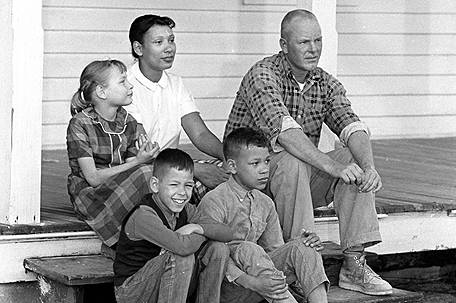In 1967, the United States Supreme Court overturned a series of prohibitions and punishments against interracial marriage with its decision in
Loving v. Virginia. Mildred Jeter, a black woman, and Richard Loving, a white man, married in Washington, D.C. in 1958. The two wed following an unplanned pregnancy and chose the District of Columbia in an effort to sidestep Virginia’s prohibitions against “mixed-race” marriages. Within months of their return to Virginia, their union had been discovered and, ultimately, deemed illegal by a grand jury in their hometown of Caroline County. The couple pled guilty to “cohabitating as man and wife against the peace and dignity of the Commonwealth,” a felony that warranted one to five years in prison under Virginia law. After a plea deal that forced the Lovings to leave Virginia for a proposed twenty-five years, the couple’s mounting frustrations with their inability to visit family members back home prompted the Lovings, in 1964, to challenge their sentence all the way to the United States Supreme Court.

In oral arguments made before the Warren court, featured here, the Lovings’ attorneys outlined the unevenness and arbitrariness of anti-miscegenation laws running from 1691 to the 1930s. The lawyers also detailed the importance of the Fourteenth Amendment in preserving the meaning of citizenship in even the most intimate matters of daily life.






